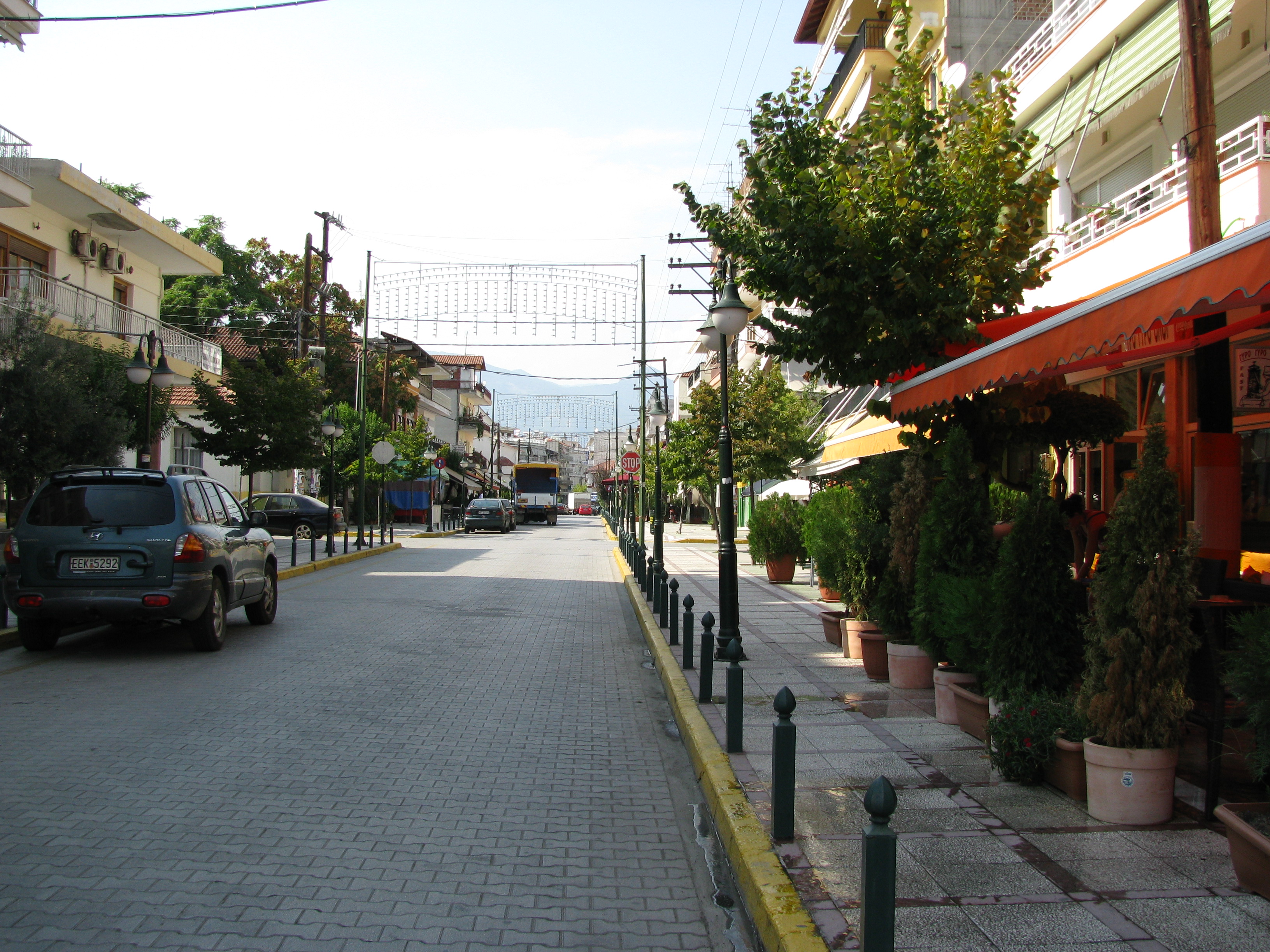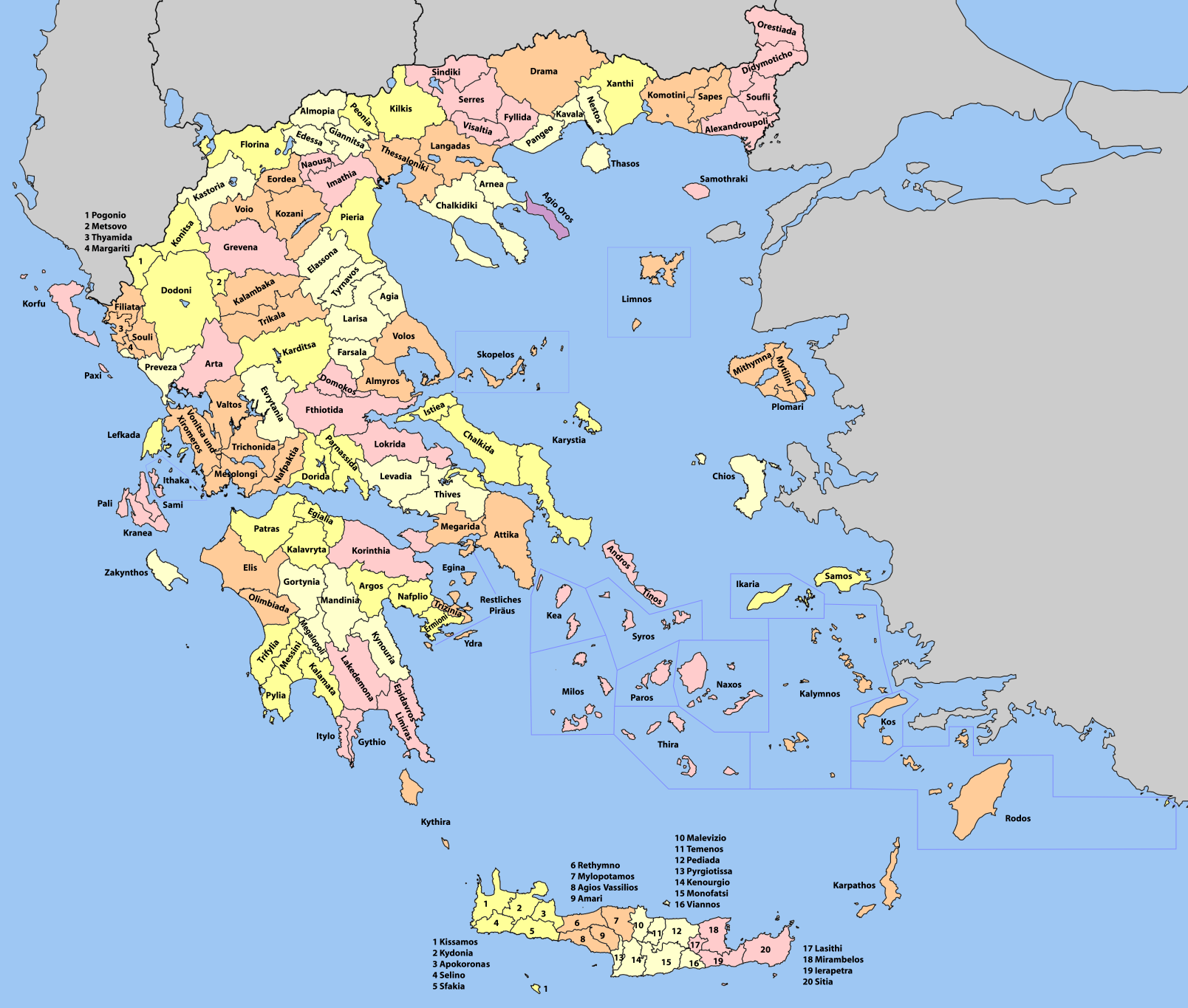|
Almopia
Almopia (), or Enotia (Greek: О•ОҪПүП„ОҜОұ), also known in the Middle Ages as Moglena (Greek: ОңОҝОіО»ОөОҪО¬, Macedonian and Bulgarian: РңРөРіР»РөРҪ or РңСҠРіР»РөРҪ), is a municipality and a former province (ОөПҖОұПҒПҮОҜОұ) of the Pella regional unit in Macedonia, Greece. The seat of the municipality is the town Aridaia. The municipality has an area of 985.817 km2. Name and history The name Almopia (, ''AlmЕҚpia'') derives from the Almopes (), a Paeonian tribe that originally inhabited the area before being expelled from the region during the reign of Alexander I (r. 498вҖ“454 BC) when Almopia was incorporated into the ancient Macedonian kingdom. The Almopes traced their descent to the eponymous mythological figure of Almops, son of the Greek God Poseidon and Helle. The 2nd-century astronomer and geographer Claudius Ptolemy records three cities in the region in his ''Geography'': Horma (), Europos () and Apsalos (). In the early Byzantine period, the area was r ... [...More Info...] [...Related Items...] OR: [Wikipedia] [Google] [Baidu] |
Aridaia
AridaГӯa (, , ) is a town and a former Municipalities and communities of Greece, municipality in the Pella (regional unit), Pella regional unit, Greece. Since the 2011 local government reform, it is part of the Almopia municipality, of which it is a municipal unit. It was the capital of the former Almopia Provinces of Greece, eparchy. It is located in the northwest corner of the Pella regional unit, bordering the southern part of the North Macedonia and the northeast corner of the Florina (regional unit), Florina regional unit. Its land area is . The population of Aridaia proper is 7,118, while that of the entire municipal unit is 18,864 (2021 census). The municipal unit is divided into 17 communities. Its largest other communities are Promachoi, PrГіmachoi (pop. 1,654), Loutraki, Pella, LoutrГЎki (1,176) and Sosandra, SosГЎndra (1,008). The community of Aridaia includes the settlement of Ydraia with a population of 500 inhabitants. A Greek battalion entered Aridaia on Novemb ... [...More Info...] [...Related Items...] OR: [Wikipedia] [Google] [Baidu] |
Notia
NГіtia (, formerly ОқПҺП„О№Оұ; or ; ) is a village in the Exaplatanos municipal unit of the Pella regional unit, Macedonia, Greece. Notia was once the largest Megleno-Romanian village, whose population underwent mass conversion to Islam in the 18th century. In the 1920s, Muslim Megleno-Romanians were deported to Turkey under the terms of the Greco-Turkish population exchange, and the area was settled by Pontic Greek refugees. Early History Notia's name derives from the 11th century Byzantine castle of Enotia (the castle's precise location remains unknown). Its name was formerly spelled ''ОқПҺП„О№Оұ'' in Greek, while its Megleno-Romanian population called it ''NГўnti'' or ''NГўnta''. Evidence of early settlement of the area of Notia comes from a Roman era funerary statue fragment and a now lost ''imago clipeata'' unearthed in its vicinity. In 1134, Saint Ilarios founded the Monastery of Moglena in the vicinity of Enotia. Following the 14th century Ottoman conquest of centr ... [...More Info...] [...Related Items...] OR: [Wikipedia] [Google] [Baidu] |
Paeonia (kingdom)
In antiquity, Paeonia or Paionia () was the land and kingdom of the Paeonians (or Paionians; ). The exact original boundaries of Paeonia, like the early history of its inhabitants, are obscure, but it is known that it roughly corresponds to most of present-day North Macedonia and north-central parts of Greek Macedonia (i.e. probably the Greek municipalities of Paionia (excluding the village of Evropos), Almopia, Sintiki, Irakleia, and Serres), and a small part of south-western Bulgaria. Ancient authors placed it south of Dardania (an area corresponding to modern-day Kosovo and northern North Macedonia), west of the Thracian mountains, and east of the southernmost Illyrians. It was separated from Dardania by the mountains through which the Vardar river passes from the field of Scupi (modern Skopje) to the valley of Bylazora (near modern Sveti Nikole). In the Iliad, the Paeonians are portrayed as allies of the Trojans. During the Persian invasion of Greece, the con ... [...More Info...] [...Related Items...] OR: [Wikipedia] [Google] [Baidu] |
Pella (regional Unit)
Pella () is one of the regional units of Greece, in the geographic region of Macedonia. It is part of the Region of Central Macedonia. It is named after the ancient city of Pella, the capital of ancient Macedonia and the birthplace of Alexander the Great. The capital of Pella is Edessa with a population of 19,036 inhabitants according to the census of 2021, while the largest town is Giannitsa. Other towns include Aridaia, Skydra, Arnissa, Exaplatanos and Krya Vrysi. Administration According to the 2011 census the population of the regional unit of Pella was 139,680. It is subdivided into 4 municipalities. These are: *Almopia (2) *Edessa (1) *Pella (3) *Skydra (4) Prefecture As a part of the 2011 Kallikratis government reform, the regional unit of Pella was created out of the former prefecture Pella (). The prefecture had the same territory as the present regional unit. At the same time, the municipalities were reorganised, according to the table below. Provinces The ... [...More Info...] [...Related Items...] OR: [Wikipedia] [Google] [Baidu] |
Almops
Almops () was, in Greek mythology, a giant son of the god Poseidon and the half-nymph Helle. He was the brother of Paeon (called "Edonus" in some accounts). It is from Almops that the now-obsolete name for the region of Almopia and its inhabitants, the Almopes, in Macedonia, Greece, is believed to have derived. Stephanus, s.v. Almopia (бјҲО»ОјПүПҖОҜОұ)' Notes References * Stephanus of Byzantium Stephanus or Stephen of Byzantium (; , ''StГ©phanos ByzГЎntios''; centuryAD) was a Byzantine grammarian and the author of an important geographical dictionary entitled ''Ethnica'' (). Only meagre fragments of the dictionary survive, but the epit ..., ''Stephani Byzantii Ethnicorum quae supersunt,'' edited by August Meineike (1790-1870), published 1849. A few entries from this important ancient handbook of place names have been translated by Brady KieslingOnline version at the Topos Text Project. Greek giants Children of Poseidon Family of Athamas Mythology of Macedonia (anc ... [...More Info...] [...Related Items...] OR: [Wikipedia] [Google] [Baidu] |
Europus (Almopia)
Europus or Europos () was a town of Almopia in ancient Macedonia Macedonia ( ; , ), also called Macedon ( ), was an ancient kingdom on the periphery of Archaic and Classical Greece, which later became the dominant state of Hellenistic Greece. The kingdom was founded and initially ruled by the royal .... The site of Europus is located near modern Chrisi (Chryse). References Populated places in ancient Macedonia Former populated places in Greece {{ancientMacedonia-geo-stub ... [...More Info...] [...Related Items...] OR: [Wikipedia] [Google] [Baidu] |
Poseidon
Poseidon (; ) is one of the twelve Olympians in ancient Greek religion and mythology, presiding over the sea, storms, earthquakes and horses.Burkert 1985pp. 136вҖ“139 He was the protector of seafarers and the guardian of many Hellenic cities and colonies. In pre-Olympian Bronze Age Greece, Poseidon was venerated as a chief deity at Pylos and Thebes, with the cult title "earth shaker"; in the myths of isolated Arcadia, he is related to Demeter and Persephone and was venerated as a horse, and as a god of the waters.Seneca quaest. Nat. VI 6 :Nilsson Vol I p.450 Poseidon maintained both associations among most Greeks: he was regarded as the tamer or father of horses, who, with a strike of his trident, created springs (the terms for horses and springs are related in the Greek language).Nilsson Vol I p.450 His Roman equivalent is Neptune. Homer and Hesiod suggest that Poseidon became lord of the sea when, following the overthrow of his father Cronus, the world was divided ... [...More Info...] [...Related Items...] OR: [Wikipedia] [Google] [Baidu] |
Horma (Almopia)
Horma () was a town of Almopia in ancient Macedonia Macedonia ( ; , ), also called Macedon ( ), was an ancient kingdom on the periphery of Archaic and Classical Greece, which later became the dominant state of Hellenistic Greece. The kingdom was founded and initially ruled by the royal .... The site of Horma is unlocated. References Populated places in ancient Macedonia Former populated places in Greece Lost ancient cities and towns {{ancientMacedonia-geo-stub ... [...More Info...] [...Related Items...] OR: [Wikipedia] [Google] [Baidu] |
Macedonia (ancient Kingdom)
Macedonia ( ; , ), also called Macedon ( ), was an Classical antiquity, ancient monarchy, kingdom on the periphery of Archaic Greece, Archaic and Classical Greece, which later became the dominant state of Hellenistic Greece. The History of Macedonia (ancient kingdom), kingdom was founded and initially ruled by the royal Argead dynasty, which was followed by the Antipatrid dynasty, Antipatrid and Antigonid dynasty, Antigonid dynasties. Home to the ancient Macedonians, the earliest kingdom was centered on the northeastern part of the Greek peninsula,. and bordered by Epirus (ancient state), Epirus to the southwest, Illyria to the northwest, Paeonia (kingdom), Paeonia to the north, Thrace to the east and Ancient Thessaly, Thessaly to the south. Before the 4th century BC, Macedonia was a small kingdom outside of the area dominated by the great city-states of Classical Athens, Athens, Sparta and Classical Thebes, Thebes, and Achaemenid Macedonia, briefly subordinate to Achaemeni ... [...More Info...] [...Related Items...] OR: [Wikipedia] [Google] [Baidu] |
Apsalos
Apsalus or Apsalos () was a town of Almopia in ancient Macedonia Macedonia ( ; , ), also called Macedon ( ), was an ancient kingdom on the periphery of Archaic and Classical Greece, which later became the dominant state of Hellenistic Greece. The kingdom was founded and initially ruled by the royal .... The site of Apsalus is unlocated. References Populated places in ancient Macedonia Former populated places in Greece Lost ancient cities and towns {{ancientMacedonia-geo-stub ... [...More Info...] [...Related Items...] OR: [Wikipedia] [Google] [Baidu] |
Macedonian Kingdom
Macedonia ( ; , ), also called Macedon ( ), was an Classical antiquity, ancient monarchy, kingdom on the periphery of Archaic Greece, Archaic and Classical Greece, which later became the dominant state of Hellenistic Greece. The History of Macedonia (ancient kingdom), kingdom was founded and initially ruled by the royal Argead dynasty, which was followed by the Antipatrid dynasty, Antipatrid and Antigonid dynasty, Antigonid dynasties. Home to the ancient Macedonians, the earliest kingdom was centered on the northeastern part of the Greek peninsula,. and bordered by Epirus (ancient state), Epirus to the southwest, Illyria to the northwest, Paeonia (kingdom), Paeonia to the north, Thrace to the east and Ancient Thessaly, Thessaly to the south. Before the 4th century BC, Macedonia was a small kingdom outside of the area dominated by the great city-states of Classical Athens, Athens, Sparta and Classical Thebes, Thebes, and Achaemenid Macedonia, briefly subordinate to Achaemeni ... [...More Info...] [...Related Items...] OR: [Wikipedia] [Google] [Baidu] |
Provinces Of Greece
The provinces of Greece (, "eparchy") were sub-divisions of some the country's prefectures of Greece, prefectures. From 1887, the provinces were abolished as actual administrative units, but were retained for some state services, especially financial and educational services, as well as for electoral purposes. Before the Second World War, there were 139 provinces, and after the war, with the addition of the Dodecanese, Dodecanese Islands, their number grew to 148. According to the Article 7 of the Code of Prefectural Self-Government (Presidential Decree 30/1996), the provinces constituted a "particular administrative district" within the wider "administrative district" of the prefectures. The provinces were finally abolished after the 2006 Greek local elections, 2006 local elections, in line with Law 2539/1997, as part of the wide-ranging administrative reform known as the "Kapodistrias reform, Kapodistrias Project", and replaced by enlarged Municipalities and communities of G ... [...More Info...] [...Related Items...] OR: [Wikipedia] [Google] [Baidu] |






